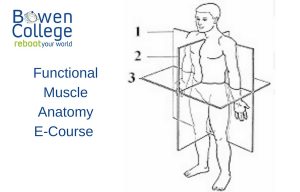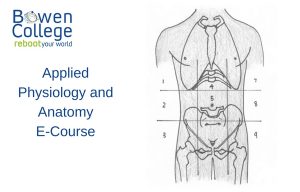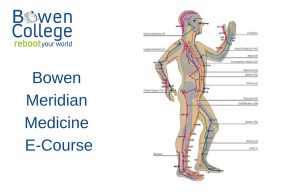In an era where conventional medicine often focuses on treating symptoms rather than addressing root causes, holistic health offers a refreshing and comprehensive approach to well-being. But what exactly is holistic health, and how does it differ from traditional medical practices? In this blog post, we’ll delve into the principles and practices of holistic health, exploring how it promotes a balanced and integrated approach to achieving optimal wellness.
Defining Holistic Health
Holistic health is an approach to wellness that considers the whole person—mind, body, and spirit—rather than isolating and treating individual symptoms. It operates on the premise that all aspects of an individual’s life are interconnected and that true health is achieved when all of these aspects are in balance.
The Core Principles of Holistic Health
- Whole-Person Approach
Holistic health emphasizes the importance of addressing all dimensions of a person’s well-being, including physical, emotional, mental, and spiritual aspects. Rather than focusing solely on treating physical symptoms, holistic health aims to understand and treat the root causes of imbalances that affect overall health. - Interconnectedness
This principle asserts that every part of the body and mind is interconnected. An issue in one area can impact other areas. For example, chronic stress can lead to physical symptoms like headaches or digestive problems. By recognizing and addressing these interconnections, holistic health seeks to promote overall balance and healing. - Personal Responsibility
Holistic health encourages individuals to take an active role in their own health and well-being. It emphasizes self-care practices and personal responsibility, empowering individuals to make informed choices that support their overall health. - Prevention and Wellness
Rather than waiting for illness to occur, holistic health focuses on prevention and promoting wellness. This involves adopting a healthy lifestyle, including a balanced diet, regular exercise, stress management, and emotional well-being, to prevent disease and maintain optimal health. - Integration of Conventional and Alternative Therapies
Holistic health often integrates conventional medical treatments with alternative therapies to provide a more comprehensive approach to care. This can include combining traditional medicine with practices like acupuncture, chiropractic care, and Bowen Therapy to address both symptoms and underlying causes.
Practices and Techniques in Holistic Health
- Nutrition and Diet
A balanced diet rich in whole foods, fruits, vegetables, lean proteins, and healthy fats is fundamental to holistic health. Nutrition plays a vital role in maintaining bodily functions, boosting immunity, and supporting mental and emotional well-being. Holistic health practitioners often provide personalized dietary recommendations based on individual needs and health goals. - Exercise and Physical Activity
Regular physical activity is crucial for maintaining physical health and overall well-being. Holistic health promotes a variety of exercises, including cardiovascular workouts, strength training, flexibility exercises, and activities that enhance mind-body connection, such as yoga and Tai Chi. - Mindfulness and Stress Management
Managing stress and cultivating mindfulness are essential components of holistic health. Techniques such as meditation, deep breathing exercises, and mindfulness practices help to reduce stress, improve mental clarity, and enhance emotional resilience. - Emotional and Mental Health
Addressing emotional and mental health is a key aspect of holistic well-being. This involves exploring and managing emotions, seeking therapy or counseling when needed, and engaging in practices that promote emotional balance and mental health, such as journaling, self-reflection, and supportive relationships. - Alternative Therapies
Holistic health often incorporates alternative therapies to complement conventional medical treatments. These can include practices such as:- Bowen Therapy: A gentle, non-invasive technique that promotes relaxation and healing by stimulating the body’s natural healing mechanisms.
- Acupuncture: A traditional Chinese medicine practice that involves inserting fine needles into specific points on the body to balance energy flow and support healing.
- Chiropractic Care: A practice that focuses on the alignment of the spine and nervous system to improve overall health and well-being.
- Spiritual Well-being
For many, spiritual well-being is an integral part of holistic health. This can involve exploring personal beliefs, connecting with a sense of purpose, and engaging in practices that nurture spiritual growth and fulfillment, such as prayer, meditation, or involvement in a spiritual community.
The Benefits of Holistic Health
Adopting a holistic approach to health offers numerous benefits:
- Enhanced Overall Wellness: By addressing multiple aspects of health, holistic practices can lead to improved physical, emotional, and mental well-being.
- Prevention of Illness: A focus on prevention and wellness helps to reduce the risk of developing chronic diseases and maintain long-term health.
- Increased Self-Awareness: Holistic health encourages individuals to become more in tune with their bodies and mind, leading to greater self-awareness and personal growth.
- Improved Quality of Life: By promoting balance and harmony, holistic health practices can lead to a more fulfilling and enjoyable life.
Conclusion
Holistic health offers a comprehensive approach to well-being by addressing the interconnectedness of mind, body, and spirit. By integrating various practices and techniques, holistic health aims to promote balance, prevent illness, and enhance overall quality of life. Whether you’re exploring new ways to improve your health or seeking to complement conventional treatments with alternative therapies, embracing the principles of holistic health can provide a pathway to greater wellness and fulfillment.









